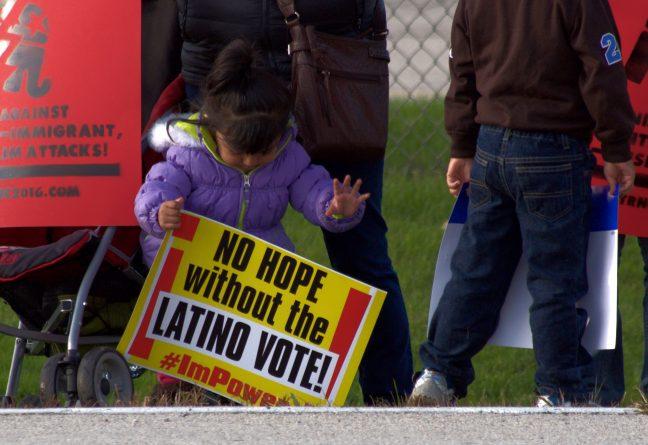As I woke up on Wednesday morning, a wave of fear and sadness washed over me as the events of the previous night slowly came back into focus.
I remembered crying myself to sleep after speaking on the phone with my stepfather the night before. His words echoed in my mind: “Sean, I know that you are in shock, just as I am, but it is looking like he is going to win.”
I remembered tears fell down my cheeks as he tried to calm me.
I remembered that he kept saying that it would all be okay, and that my life wouldn’t change a bit. He reminded me of how much he and my mother loved me, and how my life would stay exactly the same.
If you were willing to support Trump, be willing to own up to the repercussions of his election
Sick with sadness, I explained to him that for me, life had already changed.
The previous night, Tuesday, Nov. 8, my roommate, sister and I went to a bar to watch the election with a few other friends from work. My stomached ached with nervousness as I watched how everyone around us had their eyes glued to the television. As the hours passed and we saw the map on the television slowly fill up with red, I remember the way it began to hit me.
In the coming days I would feel anger, confusion and helplessness, but in that moment I only felt true fear. As I looked at my sister and my roommate I saw shock permeate their exterior until they began to sob.
As a woman, and a member of the Latino community, born in Mexico to a Mexican father and American mom, I began to fear for my life.
Would I be treated differently now? Would people look at me and immediately assume that I was here illegally, even though my mother is American?
I am a full citizen of Mexico and the United States of America. But does that matter now?
Would I be treated differently for the color of my skin and for being a woman?
I told my sister that I had to go home and hurried out the door, still tearful. I walked toward my apartment in a daze, vaguely aware of where I was going but processing nothing around me, let alone my feelings.
Until I was forced to.
As two guys who looked like they were in their late twenties rounded the corner and saw me, they began to laugh. Before I knew what was happening, they crossed the street and came to face me.
“Are you scared now? Why don’t you just go back to your damn country where you belong?”
The other laughed harder.
Speechless, I ran, praying they wouldn’t follow me. When I finally looked back, they were gone, but I was still shaking. I am still shaking.
University acknowledges spike in bias incident reports, urges students to show respect
In the four years I have lived in Wisconsin, I had never experienced anything close to such an aggressive verbal attack. I have never felt so unsafe. So I locked myself in my room that night and cried.
I’m now beginning to realize that was the easy part. Hopelessness is easy. It requires no effort to cry, to feel alone, to feel afraid. The hard work was waking up in the following days and desperately trying to find hope, find some way to still believe that the United States, and I, myself, would be okay.
I am still scared of what happened that night, and what has happened in the days since. But I no longer feel helpless.
Sí, se puede.
I pray that we can all, regardless of our political beliefs, stand up for what is right and recognize that this election will force us to stand up against the violation of basic human rights.
Former Democratic nominee Hillary Clinton reminded us to never stop standing up for what is right. When times are tough, and it feels difficult to find a way to go forward, I will heed her advice.
It is so difficult, and yet so easy. Spread love and compassion in the face of what seems like relentless hate.
In the next few months, people are going to try and slow me down, slow us down, with this hate, as those cowardly men on the street did.
But when you get home, hundreds more will shower you with love. The more I tell my story, the more support I receive. A distant cousin messaged that she loved me. An uncle said he would always have my back. Numerous friends sent messages of support.
I am comforted with the knowledge that our generation painted that map blue, demonstrating a commitment to making a difference and treating one another with kindness and respect regardless of our skin color, sexual orientation or gender. We are the future, and we will make sure this hatred remains forever trapped in the past.
There is so much more to do and to learn. But for now, perhaps what I have learned is to not be afraid to have a voice.
Sean Ortega McKinney ([email protected]) is a sophomore majoring in psychology.








